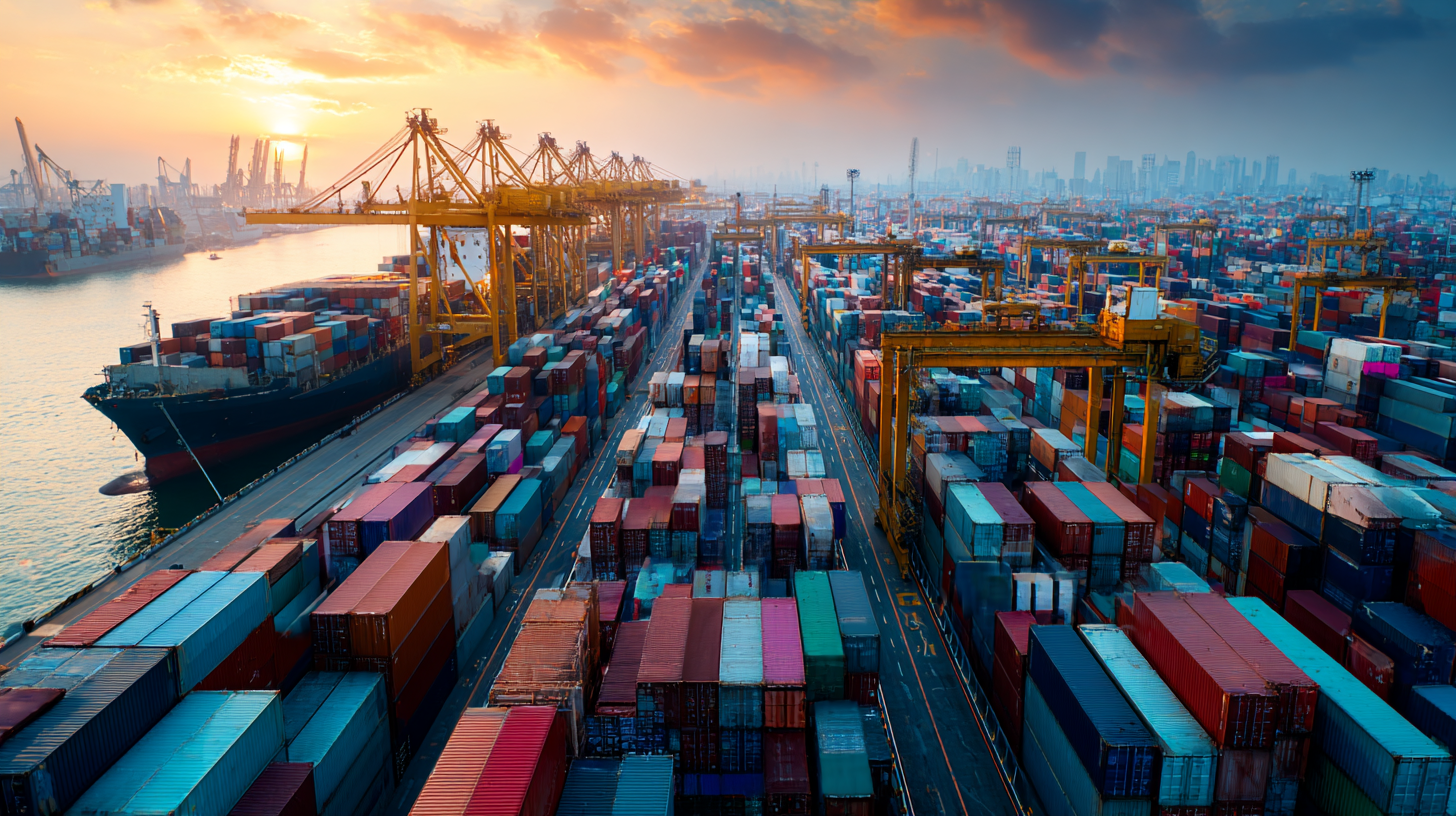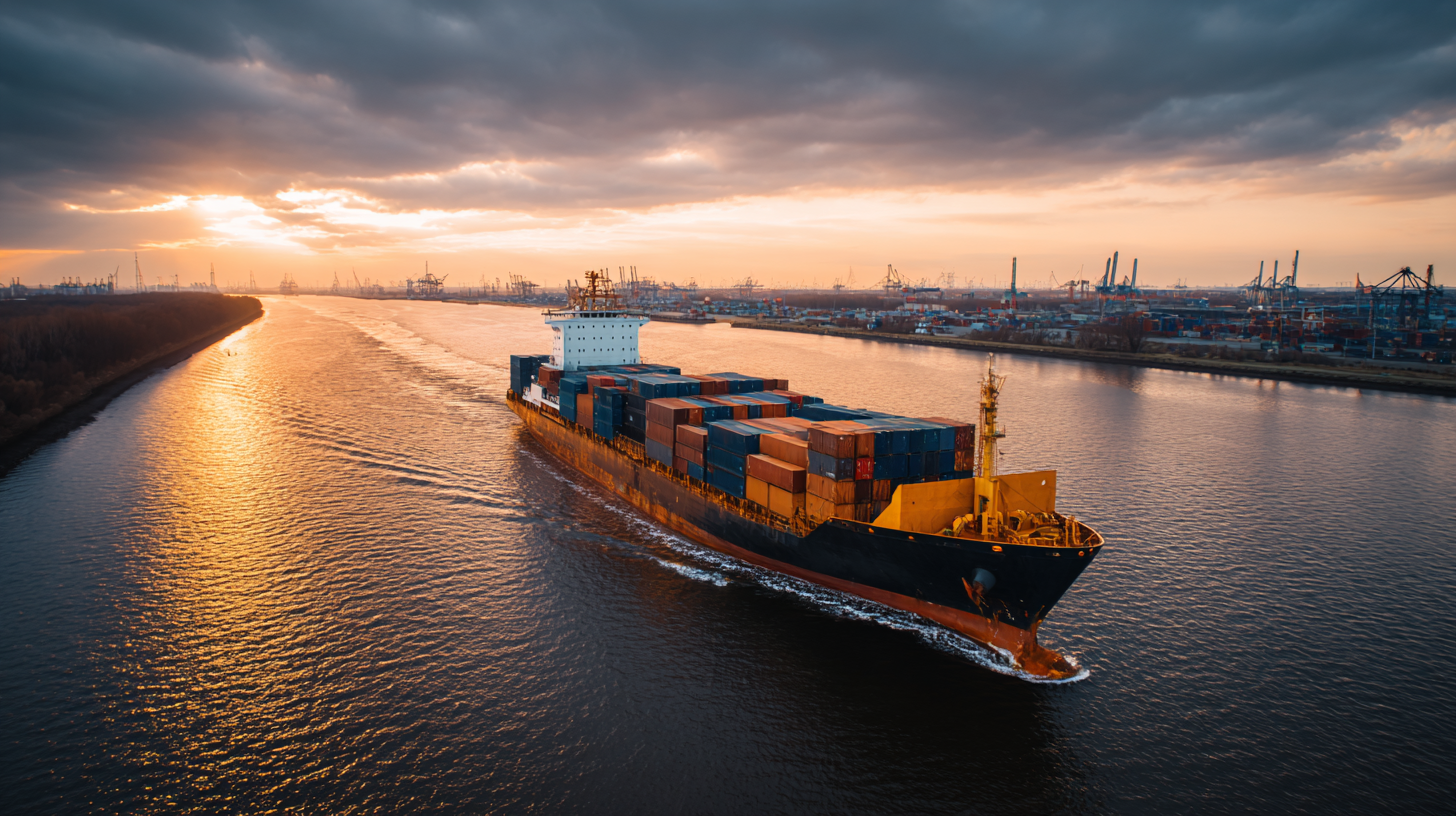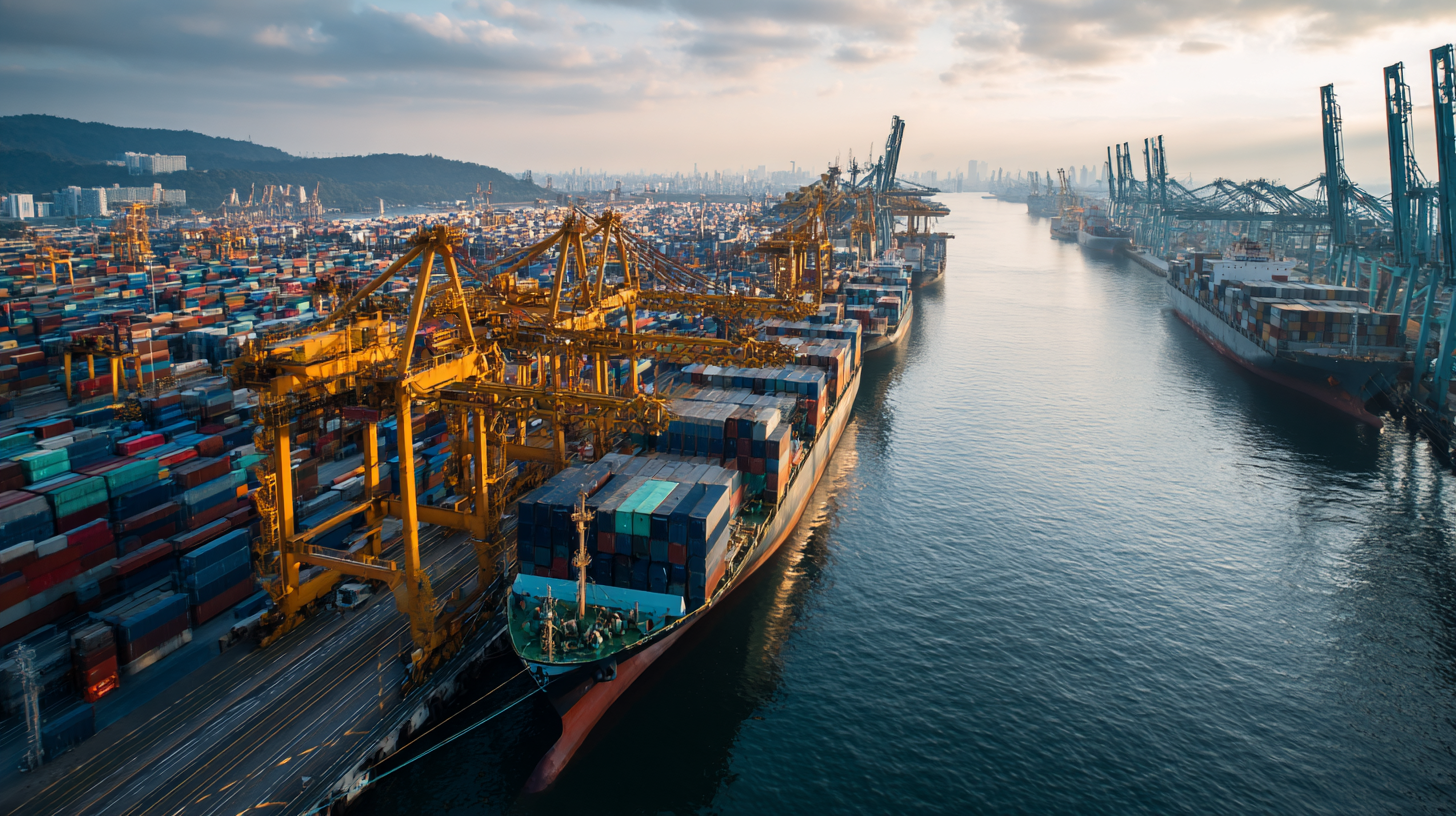As we look ahead to 2025, the landscape of Cargo Services is undergoing a significant transformation driven by technological advancements, evolving consumer demands, and global trade dynamics. In an era where efficiency and sustainability are paramount, businesses are compelled to adapt to the latest trends that shape best cargo services for global buyers.

This blog delves into the intersection of digital innovation and top-tier operational strategies in the cargo service industry, exploring how companies can leverage emerging technologies such as AI, IoT, and blockchain to optimize their supply chains.
By understanding the key trends that are set to redefine cargo services, global buyers can make informed decisions that not only enhance their logistics operations but also contribute to a more sustainable and resilient future. Join us as we navigate these trends to better equip your business for success in the ever-evolving world of cargo services.
As we look towards 2025, the cargo services industry is undergoing a significant transformation driven by emerging technologies. One of the most impactful advancements is the integration of artificial intelligence and machine learning, which allows for smarter logistics management. These technologies optimize routing and inventory management, reduce delivery times, and lower operational costs. With real-time data analytics, cargo service providers can preemptively address potential disruptions, ensuring a seamless flow of goods across global markets.
Moreover, the rise of blockchain technology is revolutionizing cargo tracking and transparency. By enabling a decentralized and tamper-proof record of transactions, stakeholders can monitor the journey of shipments in real-time. This level of transparency not only builds trust between buyers and service providers but also enhances accountability. As regulations tighten and consumers demand more visibility into their supply chains, blockchain will become essential for cargo services looking to thrive in the competitive landscape of 2025. Together, these emerging technologies are setting the stage for a more efficient, reliable, and customer-centric cargo service industry.
The logistics landscape is rapidly evolving, and by 2025, the integration of AI and automation will play a pivotal role in shaping cargo services for global buyers. According to a recent report from McKinsey, automation can increase operational efficiency in cargo services by up to 30%, significantly reducing turnaround times and costs. With advanced algorithms, companies can streamline route planning and load optimization, ensuring that shipments are both timely and cost-effective. This shift towards tech-driven operations not only enhances productivity but also allows for a more responsive supply chain.
Tips for buyers looking to leverage these advancements include investing in tech-friendly partnerships that prioritize AI integration, ensuring they can keep pace with market demand. Additionally, staying informed about the latest automation tools can help businesses optimize their logistics processes. Embracing smart technologies such as predictive analytics will enhance decision-making, allowing companies to anticipate bottlenecks and expedite cargo delivery.
As AI continues to evolve, its capability in predictive maintenance will further augment cargo efficiency. A report by Gartner highlights that implementing AI solutions can lead to a 15% reduction in shipping delays. Companies should consider adopting AI-driven tracking systems to gain real-time insights into shipment statuses. By harnessing these innovations, global buyers can position themselves for success in an increasingly competitive cargo environment.

As the world shifts toward sustainability, the cargo services industry is being transformed by new environmental standards and consumer expectations. Global buyers are increasingly prioritizing eco-friendly practices, prompting logistics companies to adopt greener technologies and processes. This shift not only reduces carbon footprints but also enhances brand reputation in an eco-conscious market. Companies must assess their supply chains and operational strategies to align with sustainable practices, ensuring compliance with emerging regulations while appealing to environmentally aware consumers.
**Tip:** Evaluate your current logistics provider's sustainability initiatives. Look for companies that have implemented carbon offset programs, use energy-efficient vehicles, or employ alternative fuels. This not only aligns your business with eco-friendly standards but can also lead to cost savings in the long term.
Innovations such as electric vehicles and renewable energy-powered warehouses are becoming essential in the cargo sector. Additionally, the rise of circular economy principles encourages businesses to rethink their packaging and waste management strategies, significantly impacting cargo operations. By investing in sustainable technologies, companies can improve their operational efficiency and strengthen their market position.
**Tip:** Research and adopt circular packaging solutions that minimize waste and optimize resource usage. Engaging in partnerships with sustainability-focused organizations can also enhance your supply chain’s resilience while promoting responsible consumption.

The year 2025 is set to be a pivotal moment for cargo services, influenced by several key market drivers that are reshaping the industry. With the air cargo market projected to reach $345.04 billion by 2025, and further growing to $436.7 billion by 2032, the demand for innovative solutions is evident. The rise of cross-border e-commerce, particularly in regions like Yiwu, showcases how logistics innovations are essential for merchants to seize new opportunities in a digitally-driven economy.
Tips for navigating these trends include staying informed about evolving technologies that enhance supply chain efficiency. Investing in automation and AI can significantly streamline operations and reduce delivery times. Additionally, fostering partnerships with tech-savvy logistics providers can help businesses leverage the latest advancements in unmanned delivery systems.
Moreover, maintaining flexibility in logistics strategies is crucial. As consumer expectations shift towards faster and more convenient delivery options, businesses must adapt quickly to remain competitive. By embracing change and prioritizing customer satisfaction, companies can thrive in the dynamic cargo service landscape of the future.
As we move deeper into 2025, the landscape of cargo services is rapidly transforming, shaped significantly by evolving customer expectations. Modern global buyers are no longer satisfied with the traditional standards of service; they are demanding transparency, speed, and flexibility. According to a report by the International Air Transport Association (IATA), 80% of cargo customers now prioritize real-time tracking and communication over tentative estimates and vague delivery windows. This shift is compelling logistics providers to adopt advanced technologies that enhance visibility and streamline operations.
To meet these heightened expectations, cargo service providers must embrace digital transformation. Incorporating AI and IoT can greatly improve efficiency and customer satisfaction. For instance, predictive analytics can optimize route planning and inventory management, ultimately resulting in swifter delivery times. Additionally, fostering a user-friendly digital interface for bookings and customer service can increase customer loyalty.
**Tip:** To stay ahead in the competitive market, logistics companies should invest in comprehensive training for their staff on new technologies. This ensures that teams can effectively leverage tools that improve responsiveness to customer needs. Furthermore, soliciting regular feedback from buyers can help cargo services adapt more rapidly to changing demands.






